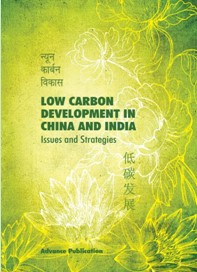China, India share experiences in low carbon development
chinagate.cn by Jiao Meng, March 20, 2014 Adjust font size:
|
Mr. Christophe Bahuat, Resident Representative a.i., UNDP China, chairs the pre-launching ceremony of ‘China-India Low Carbon Study’ report on Monday in Beijing. [Jiao Meng / Chinagate.cn] |
The ‘China-India Low Carbon Study’ represents one of the first collaborative efforts between key research institutes in both countries working on climate change-related issues. It examines the main factors in low carbon development – financing, low carbon technologies and on-the-ground implementation – and provides practical recommendations for greater cooperation between the world’s two most populated countries, helping them to share experiences, promote knowledge exchange and disseminate ideas to shape domestic policies and implementation.

"The intended outcome of the collaborative project on low carbon development for China and India would be supporting policy development by facilitating south-south cooperation, creating relevant knowledge and building capacities," said Ms. Shailly Kedia, Associate Fellow and Area Conventor, The Energy and Resources Institute of India.
She revealed some key research results in the pre-launching ceremony of this report held Monday in Beijing.
In terms of emerging areas for policy incubation, India can learn from China from fiscal stimulus and banking guidelines, strengthening incentive systems to promote research, development, demonstration and deployment (RDD&D) and China's Low carbon pilots.
While India can share experiences such as State Action Plan on Climate Change (SAPCC), Demand response pricing mechanisms and Renewable Portfolio Standards.

![Mr. Christophe Bahuat, Resident Representative a.i., UNDP China, chairs the pre-launching ceremony of ‘China-India Low Carbon Study’ report on Monday in Beijing. [Jiao Meng / Chinagate.cn] Mr. Christophe Bahuat, Resident Representative a.i., UNDP China, chairs the pre-launching ceremony of ‘China-India Low Carbon Study’ report on Monday in Beijing. [Jiao Meng / Chinagate.cn]](http://images.chinagate.cn/attachement/jpg/site1021/20140320/001372a0ea80149498d923.jpg)
